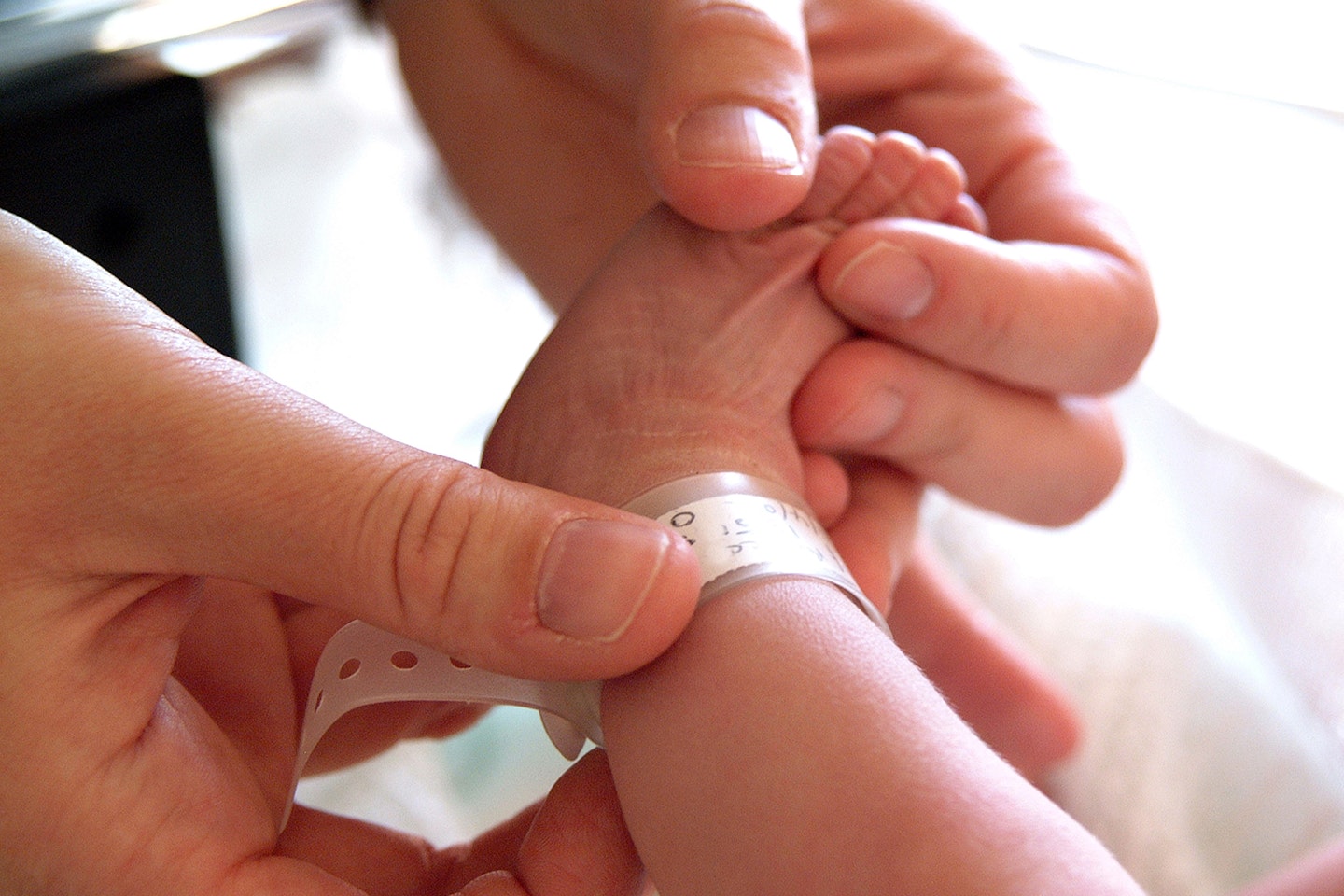It's impossible to know what to say to someone who has suffered a stillbirth. If you know someone who has recently lost a baby, you may need to know the most supportive ways to speak to them.
Around 3,500 babies are stillborn in the UK every year, yet the issue remains a taboo.
The grieving parents of stillborn babies are often too scared or traumatised to speak out about their experiences, and their friends and family are nervous of saying the wrong thing, so instead say nothing.
To try and end this cycle, we spoke to Sophie King, a midwife from the charity Tommy's – who fund research into the causes of miscarriage, stillbirth and premature birth – to get her expert advice on how to be there for someone who's experienced a stillbirth.

Stillbirth: The statistics
Around 10 babies are stillborn in the UK every day. That equates to 3,500 stillbirths a year, and a shocking 2.6 million worldwide.
According to the NHS, stillbirth is 15 times more common than cot death, and around 10% of stillborn babies have some kind of birth defect which contributed to their death.
What is stillbirth?
Stillbirth is the death of a baby after 24 weeks of pregnancy, but before birth. The loss of a baby before 24 weeks of pregnancy is classed as a miscarriage.
CLOSER how to help someone who has had a stillbirth advice - STACKED
 1 of 5
1 of 5What to say to someone who has had a stillbirth
The death of a baby before birth can be just as painful as losing a child of any other age. It can be hard for parents to know how to cope. Feelings of intense grief, anger and guilt are all common. Here are ways you can help support someone experiencing the tragedy of stillbirth.
 2 of 5
2 of 51) Listen
Women who have had a stillbirth often say the best support was someone who was just there for them and listened. Someone who cared and asked questions about how they can support.The death of a child is heartbreaking and it will be difficult to know what to say. Your gut instinct may be telling you to give the parents space until they are ready to talk, but if everyone does that they may have no one to talk to.Don't assume the parents are dealing with their grief together. One may want to talk and the other might not be able to yet, so they may need support in different ways.If you don't know where to start, try saying something along the lines of: "I'm not sure what to say and I'm worried about saying the wrong thing. Please tell me if I say something offensive or wrong."It really is far worse if you don't say anything at all.
 3 of 5
3 of 52) Be practical
Remember that the mother will have been through a delivery, probably a normal birth. Ask her how it was and remember she will be recovering physically from the birth as well as being in an emotional spin after the trauma of losing her child. She may not be able to lift heavy things, she may have stitches and be sore.Just as you would if the baby had lived, bring round pre-cooked food for the freezer and look after housework, take other siblings to school and walk the dog.Ask what practical support the parents need. Ask whether they would like you to stay, and if you do, keep checking you are not over-staying. Be prepared to change plans quickly and leave the couple if they need time alone together.Remember, in the first few weeks when they should enjoying a steady stream of well-wishers and flower deliveries, stillborn parents will be making funeral arrangements.
 4 of 5
4 of 53) Acknowledge the baby AND the parents
In the very early hours and days after a stillbirth, the parents may want you to come meet the baby. This may be the first time you have seen a baby who is stillborn, and it may be quite a shocking and distressing experience.Try not to make excuses. Would you have dropped everything to come to see the new baby if he or she had lived? Remember, the parents only have their baby for a short, precious amount of time, and that time needs to create a life-time of memories.Whether you are able to visit or not, ask questions about the baby. Ask to see photos if the parents have some, and do not be afraid to use the baby's name. Hearing their baby's name spoken aloud by other people is one of the most important things to parents of stillborn babies.Just as you would if the baby had lived, comment about how curly his eye-lashes are, or how long her legs are, or how cute their nose is. These 'normal' comments about their baby will be so precious to the parents.Do not ignore the loss. This can especially be the case for parents when they return to work after stillbirth. Colleagues can feel it is 'none of their business' and not acknowledge the baby and the loss.When the parents are home, don't expect them to 'just get on with it'. Keep checking in and messaging even if you get no response. Try to say more than just, "I'm thinking of you," which feels too impersonal. For many parents, stillbirth is a huge source of guilt and shame - help them to feel that they are still worthy of your company and you are there for them.Time lessens but it never fully heals. Acknowledge the baby in the months and years that follow, remember important dates and include them in family occasions and celebrations.Equally as important, acknowledge the person has become a parent and that they deserve that title. An empty-armed parent is arguably the hardest parenting of all.
 5 of 5
5 of 54) Research into stillbirth
Stillbirth often happens unexpectedly, with no obvious explanation. Many parents want to know why their baby has died, whether it might happen again if they try for another baby and what they can do to stop it.More research into the risk factors surrounding stillbirth is needed before every family affected is given proper answers to these questions, and more babies protected from stillbirth. At the Tommy's Stillbirth Research Centre at St Mary's, Manchester, Professor Alex Heazell and his team are dedicated to improving these shocking statistics.
WATCH: This Morning's Nik and Eva Speakman on how to combat mental health issues
READ MORE
Stillbirth: Causes, symptoms, risks and birth process explained
Stillbirth: One mum shares her heartbreaking story of losing her first child
10 beautiful stillbirth & miscarriage poems to help grieving mothers
Stillbirth and reduced foetal movement
Parents-to-be should be empowered with current and up-to-date information about monitoring their baby's movements. A recent survey by Tommy's found that 55% of women who had a stillbirth noticed their baby's movements had slowed down or stopped, but hadn't reported it.
Mums should seek advice as soon as they are worried about baby's movements - whether they have reduced or changed noticeably - and they should be encouraged to follow their instinct. Old information, such as baby moves less in the third trimester, is incorrect and dangerous. Tommy's Movements Matter campaign is there to advise pregnant mothers on what to do if they think their baby's movements have changed.
If you or a loved one have been through a stillbirth and need some advice or comfort, get in touch with Tommy's here.
